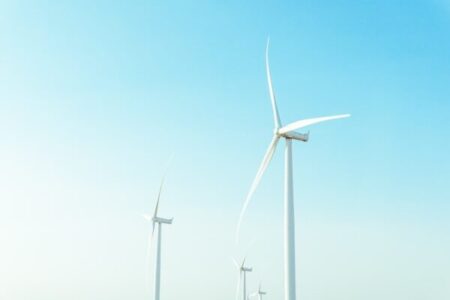Offshore Wind and Carbon Capture and Storage Colocation Forum commissions vital research to support the UK’s first testing & demonstration of the viability of colocation projects.
The Offshore Wind and Carbon Capture and Storage (CCS) Colocation Forum (“the Forum”), set up to provide strategic coordination of colocation research and activity on the nation’s seabed, has commissioned two research projects designed to inform the best approach to test and demonstrate the colocation of offshore wind and CCS activities in the future.
Photo by Levan Badzgaradze
To achieve the UK’s net zero targets, the UK Government is targeting the delivery of 50 gigawatts of offshore wind energy and the capture of 20-30 million tons of CO2 per year by 2030. Such ambitious targets, alongside the competing demands from other offshore sectors, will place increased demand on finite seabed space, making the colocation of offshore wind and CCS increasingly important.
The research projects – Project Colocate and Project Anemone – build on the Forum’s Spatial Characterisation Report, which identified areas of potential overlap for offshore wind and CCS on the seabed, and NSTA’s Seismic Imaging Report, which explored various options for monitoring carbon storage and offshore wind sites to help resolve possible colocation issues.
Delivered by the University of Aberdeen with funding from The Crown Estate and Crown Estate Scotland, Project Colocate will investigate the viability of areas on the seabed for colocation of CCS and offshore wind, with bespoke monitoring plans for each area, supporting the Forum’s ambition to create a pipeline of potential test & demonstration sites for the future. Researchers from the University of Aberdeen will focus their investigations on the East Irish Sea and Central North Sea, both of which have been identified as having significant potential for future colocation of CCS and offshore wind. The complementary Project Anemone will explore mutually beneficial opportunities arising from the colocation of these developing industries.
Tom Mallows, Head of Offshore Development for Emerging Technologies and Infrastructure, at Crown Estate Scotland, said: “Our ScotWind Leasing round, which saw the successful awarding of 20 projects with a combined intended installed capacity of 27.6GW, and our most recent offshore wind leasing round INTOG (Innovation and Targeted Oil and Gas), demonstrates the huge clean energy opportunity which offshore wind offers. It also highlights how important Project Colocate will be in helping establish a clear set of measures and tools to help ensure CCS is provided for in a considered and complementary way alongside offshore wind as an essential component of the transition to a decarbonised economy.
Chaired by The Crown Estate, the Offshore Wind and CCS Colocation Forum brings together partners including NSTA, Carbon Capture and Storage Association (CCSA), RenewableUK, OWIC, Government and Crown Estate Scotland to identify the key challenges and opportunities associated with the colocation of offshore wind and CCS infrastructure.
Further information can be read here.
